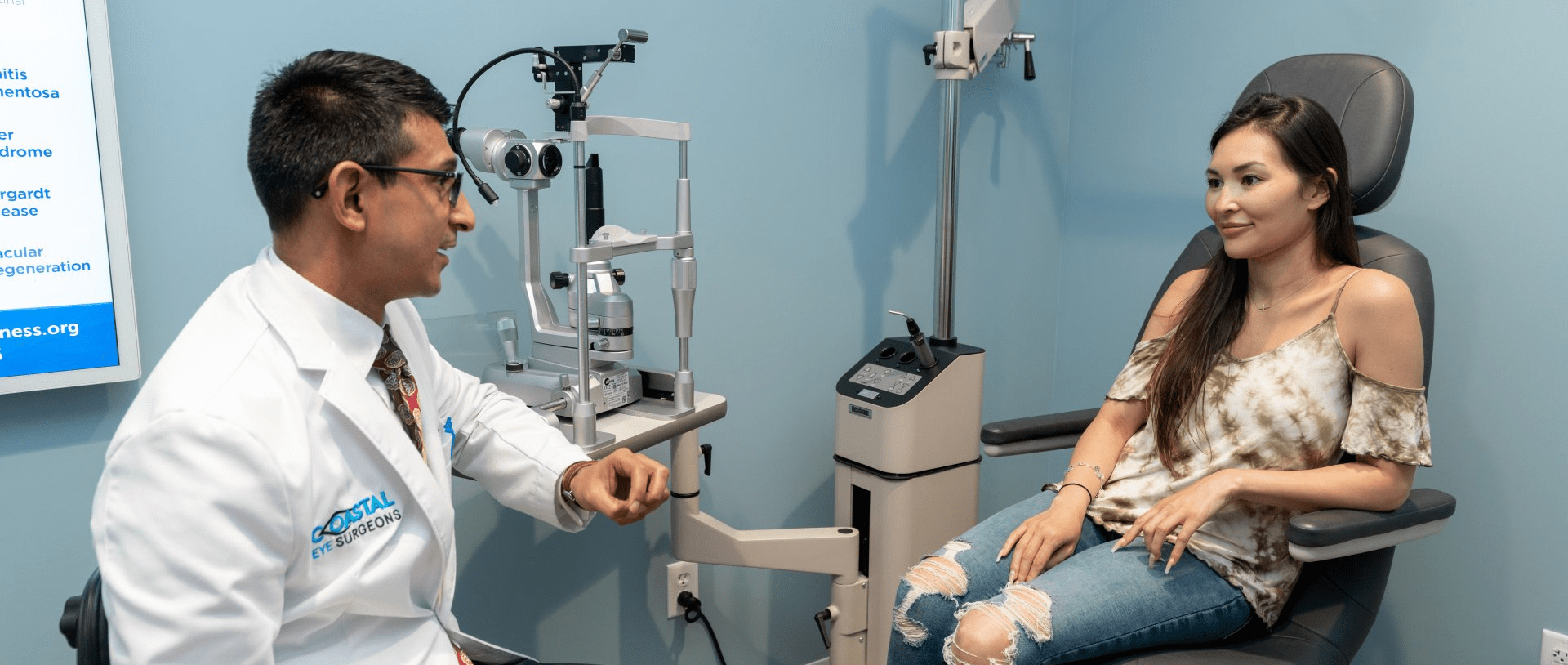

Glaucoma is a serious eye condition that can lead to blindness if not treated properly. Laser iridotomy is a type of laser surgery used to treat glaucoma by reducing eye pressure. But is this procedure safe for glaucoma patients? In this blog post, we will explore the potential risks and benefits of laser iridotomy for glaucoma patients, as well as what to expect before, during, and after the procedure.
What is Laser Iridotomy?
Laser iridotomy is a common procedure used to treat glaucoma. It involves the use of a laser to make a small opening in the iris, which helps to lower the pressure inside the eye and reduce the risk of vision loss.
The procedure can be done in an outpatient setting and is generally very safe. Most patients experience no complications or side effects from the procedure and are able to go home shortly after.
Overall, laser iridotomy is a safe and effective procedure for treating glaucoma and can help preserve vision in those affected. It’s important to discuss your individual situation and any potential risks with your doctor to determine if laser iridotomy is right for you.
Who needs Laser Iridotomy?
When it comes to treating glaucoma, laser iridotomy is a safe and effective procedure for reducing intraocular pressure. It can help slow the progression of glaucoma and prevent further damage to the optic nerve.
The procedure is typically done on patients with narrow or blocked drainage angles or those who have increased pressure in their eyes due to a condition called primary angle closure glaucoma.
It is important to speak with your ophthalmologist to determine if you are a good candidate for laser iridotomy. Your doctor will consider your age, medical history, type of glaucoma, and other factors when making a recommendation for treatment.
Laser iridotomy is generally considered a safe procedure, and the risks are minimal. However, as with any medical procedure, there are potential complications that should be discussed with your doctor before proceeding with treatment. The most common complication associated with laser iridotomy is an infection, although this is rare. Other risks include eye irritation, inflammation, and scarring.
If you are considering laser iridotomy to treat your glaucoma, it is important to speak with your ophthalmologist about the potential risks and benefits of the procedure.

How is the Procedure Performed?
During the procedure, the eye will be numbed using eye drops, and then the surgeon will use a laser to make a tiny hole in the iris. This hole allows fluid in the eye to drain properly and lowers the pressure within the eye. In most cases, only one eye needs to be treated, but both eyes may need treatment if both have elevated pressure.
The results of laser iridotomy can often be seen almost immediately after the procedure, with many patients experiencing significant improvement in their vision and pressure within a few days. Patients should see an ophthalmologist after to ensure that they do not experience any problems related to the surgery.
Following the procedure patients are encouraged to go home and rest as much as possible. They should also refrain from strenuous physical activity or heavy lifting until they recover fully from the surgery.
What are the Risks Associated with Laser Iridotomy?
When it comes to treating glaucoma, one of the most common treatments is laser iridotomy. Laser iridotomy is a procedure that involves creating an opening in the iris of the eye to reduce intraocular pressure (IOP). The goal of the procedure is to reduce IOP and prevent further damage to the optic nerve due to glaucoma.
Though laser iridotomy is generally considered safe and effective, there are some risks associated with the procedure. The most common risks include:
- Infection – Although rare, infection may occur after the procedure if proper post-operative care is not taken. Your doctor will provide you with instructions on how to care for your eye after surgery.
- Vision Loss – Though very rare, there is a risk of vision loss following laser iridotomy. This risk increases in patients who have an extreme amount of IOP before the procedure.
- Increased IOP – In some cases, the laser procedure can actually increase intraocular pressure. If this occurs, your doctor may recommend medication or additional laser treatments.
- Bleeding – As with any surgical procedure, there is a risk of bleeding during or after laser iridotomy. Your doctor will discuss the risks of bleeding with you prior to the procedure.
- Pain – You may experience some pain and discomfort during and after the procedure. Your doctor may prescribe pain medications to help manage this.
Overall, laser iridotomy is considered a safe and effective treatment option for glaucoma patients. However, it’s important to discuss all potential risks with your doctor before undergoing the procedure.
What are the Benefits of Laser Iridotomy?
Laser iridotomy is a common procedure used to treat glaucoma, a condition that can cause vision loss and blindness. The procedure involves creating a small hole in the iris of the eye with a laser. This helps to reduce the pressure in the eye and, as a result, reduces the risk of further damage to the optic nerve caused by glaucoma.
The benefits of laser iridotomy are numerous, including a reduction in eye pressure, improved vision, and reduced risk of glaucoma-related vision loss. In addition, the procedure is generally very safe when done correctly and is usually performed on an outpatient basis.
For those who have glaucoma, laser iridotomy can help to reduce the risk of further vision loss and provide relief from the symptoms associated with glaucoma. Additionally, some patients may experience improved vision quality after the procedure.
It is important to note that laser iridotomy is not a cure for glaucoma, and it will not reverse any damage that has already been done to the optic nerve. However, it is a safe and effective way to reduce the risk of further damage caused by glaucoma.
If you are considering laser iridotomy, it is important to speak with your doctor to make sure it is right for you. Your doctor will be able to discuss all of the potential risks and benefits of the procedure and help you decide if it is right for you.

